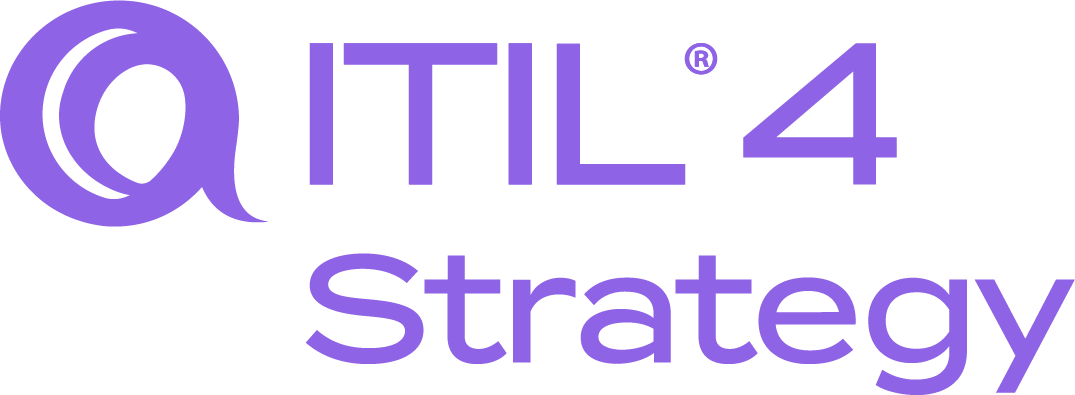What is ITIL®4 Strategist Direct, Plan and Improve e-learning
This e-learning offers you the practical skills needed to create a learning and continuous improving IT organization, with a strong and effective strategic focus. The course investigates the influence and impact of Agile and Lean operation of works, and how they can be used to the advantage of an organization. After the training you will know to implement a practical and strategic method for planning and delivering continuous improvement with the desired manoeuvrability.
During the e-learning you have access to our trainers for support. They bring a wealth of practical experience to the theoretical concepts, offering real-world insights and best practices. This training empowers you with the skills to strategically plan and implement continuous improvements, keeping your organization agile and competitive. By mastering the principles of ITIL®4, you can significantly enhance the value and efficiency of your IT operations.
ITIL® is a (registered) Trade Mark of AXELOS Limited, used under permission of AXELOS. All rights reserved.
Who should attend ITIL®4 Strategist Direct, Plan and Improve e-learning
- IT Managers: Oversee IT operations and ensure alignment with business goals.
- Project Managers: Plan and execute IT projects with a focus on continuous improvement.
- Service Delivery Managers: Ensure the delivery of high-quality IT services.
- Business Analysts: Analyze and improve IT processes to meet business needs.
- IT Consultants: Provide expert advice on IT strategy and improvement.
- Change Managers: Manage organizational change and ensure smooth transitions.
- Process Owners: Define and manage IT processes for optimal performance.
- Quality Managers: Ensure IT services meet quality standards and drive improvements.
- IT Directors: Lead IT strategy and ensure alignment with organizational goals.
- Operations Managers: Oversee day-to-day IT operations and drive efficiency.
Prerequisites
Participants should have the ITIL®4 foundation certificate and have experience in IT management. Experience in IT service management is recommended but not mandatory
Objectives
At the end of the training you will be able to:
Understand the differences between the following key concepts:
- Vision and mission.
- Strategy, tactics and operations.
- Governance, compliance and management.
- Policies, controls and guidelines.
Identify the scope of control and within this:
- Know how to cascade objectives and requirements.
- Know how to define effective policies, controls and guidelines.
- Know how to place decision-making authority at the correct level.
- Understand the role of risk and risk management in DPI.
- Understand how governance impacts DPI.
- Know how to ensure that controls are sufficient, but not excessive.
- Know how to use the ITIL®4 continual improvement model to improve the Service Value System (SVS) or any part of the SVS.
- Know how to identify assessment objectives, outputs, requirements and criteria.
- Know how to select an appropriate assessment method for a particular situation.
- Know how to define and prioritize desired outcomes of an improvement.
- Know how to build, justify and advocate for a business case.
Know how to conduct:
- Improvement reviews.
- Analysis of lessons learned.
- Know how to embed continual improvement at all levels of the SVS.
- Understand the nature, scope and potential benefits of organizational change management (OCM).
- Know how to use the key principles and methods of communication and OCM.
- Identify and manage different types of stakeholders.
- Effectively communicate with stakeholders and influence them.
- Establish effective feedback channels.
- Know how to establish effective interfaces across the value chain.
- Know how to define Critical Success Factors and Performance Indicators to support objectives.
- Understand the differences between value streams and practices and how those differences impact direction, planning and improvement.
- Know how to select and use the appropriate methods and techniques to direct, plan and improve value streams and practices.
- Addressing the four dimensions of service management.
- Applying the guiding principles.
- Value stream mapping.
- Optimization of workflow.
- Elimination of waste.
- Ensuring & utilizing feedback.
Exam information
This training includes a voucher for the official, internationally recognized exam.
The costs of the exam voucher are included in the price of the training. Shortly after the start of the training you will receive a voucher with which you can reserve your exam.
Bear in mind that you must plan your exam at least 5 working days in advance.
For more info check: https://academy.capgemini.nl/en/topic/exams-capgemini-academy
- Exam duration (minutes): 90 min
- % extra time for non-native speakers: 25%
- Number of exam questions: 40
- Minimum to pass out of total questions: 28
- Exam style: Multiple choice
- Open Book: No
Exam guarantee:
We have full confidence in the quality of our training. Therefore, if you take this training in our open schedule, we offer an exam guarantee. This means that you can retake the training for free, and you’ll receive a complimentary exam voucher if you don’t pass the exam on your first attempt.
The following conditions apply:
- You attended the entire training.
- You took the first exam within 2 months after the training.
- There is a maximum of 1 year between your initial training and the free training.
Classroom, online, blended and in-company
At Capgemini Academy you learn in the way that suits you. Do you prefer classroom training, online or a combination of the two (blended)? You can follow most training courses in-company: within your own organization. We use a variety of tools to make learning even more fun and effective. Consider videos, games, quizzes, webinars and case studies, for example. And you can always contact your trainer with any questions.

In-company training courses
With an in-company training you have several advantages:
- You choose the location.
- You train with your colleagues, ensuring it aligns with your practice.
- The trainer tailors explanations, examples and assignments to your organization.
- In consultation, exercises can be adapted to organization-specific questions.
Request more information or a quote.

